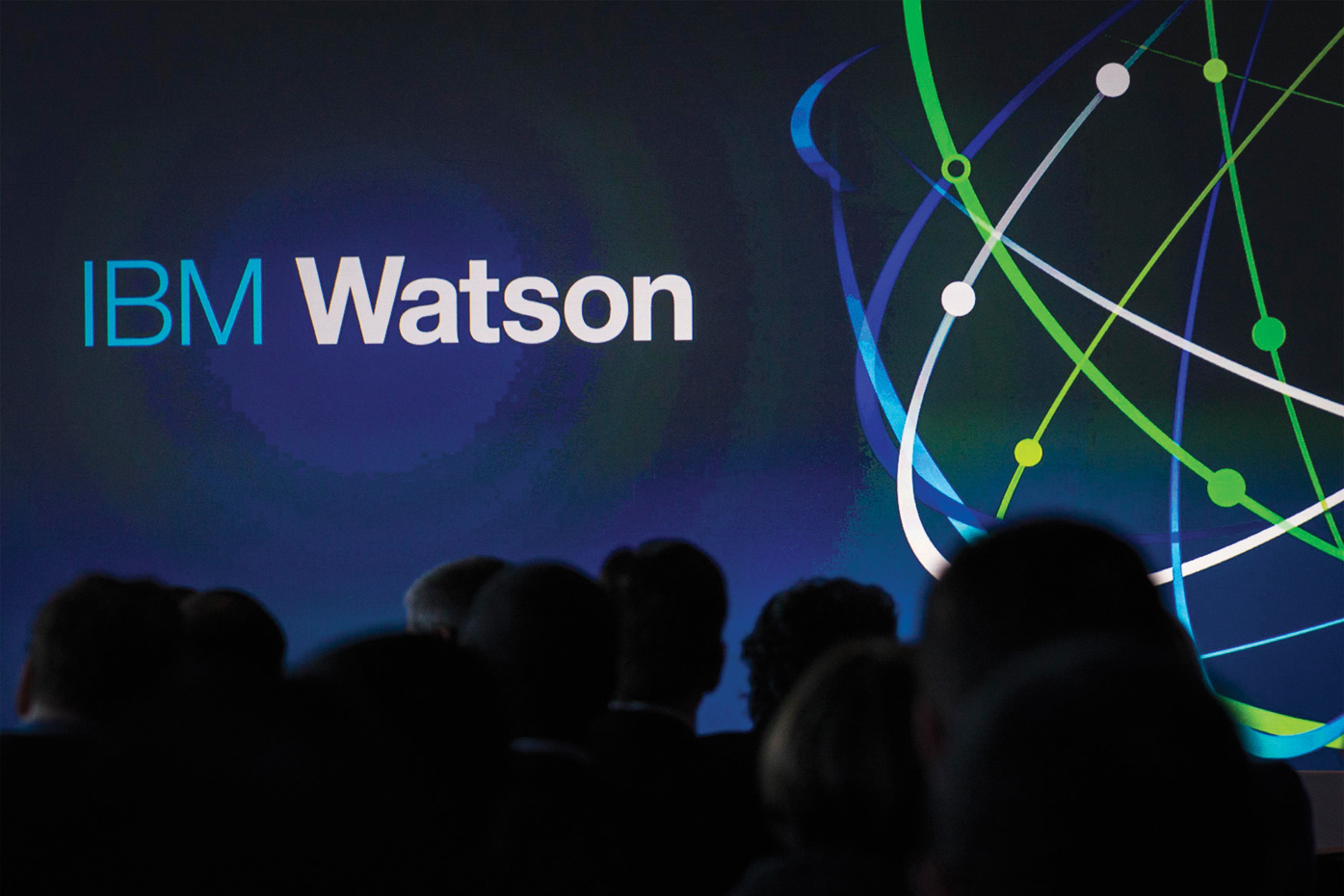We know that it is tough for medical practitioners to keep pace with the latest in medical research even as they need to use latest findings to bring change in their patient care strategy. It is critical for them to be in the know at all times. But in a regular scenario that can be quite a challenge for the doctors; and that is where IBM’s Watson platform comes into play.
In April 2015, IBM had launched IBM Watson Health and the Watson Health Cloud Platform with the aim to bring a cognitive capability to help medical practitioners get insights from the personal health data available to them and devise the right healthcare course. According to the company, IBM Watson Health helps the doctors, researchers and insurers to innovate by providing critical information derived from the massive amount of personal health data that gets created daily. The Watson Health Cloud allows this information to be shared and combined with a dynamic and constantly growing aggregated view of clinical, research and social health data.
What is Watson for Oncology?
Oncology and cancer treatment is one area where IBM Watson can help immensely. Watson represents a fundamental shift in the paradigm of computing, moving from programmable systems that have been the mainstay for the last several decades to learning systems that keep getting better as they process more knowledge. Watson has the ability to read and understand natural language. Watson for Oncology, a cognitive computing platform was developed by IBM in collaboration with Memorial Sloan Kettering Cancer Center, one of the world’s leading cancer centres.
In fact IBM is pushing Watson for Oncology in major way because the company sees it becoming an essential tool for Oncologists in developing highly individual treatment based on patient case history. It allows the doctor to be more dynamic than ever by analysing existing data to provide information and insights regarding evidence-based treatment options.
How do doctors get the right insight?
The first thing to point out here is that the platform uses natural language which ensures ease of use. When a doctor works with Watson for Oncology, then he or she gets access to an impressive corpus of up to date information from more than 300 medical journals, more than 200 textbooks, and nearly 15 million pages of text.
Not only does it offer information but also gives supporting evidence in the form of administration information, as well as information regarding the different drug options. Based on both the information and actual usage evidence a doctor is then able to explore treatment options, and gather evidence specific to a patients’ individual health needs.
Since the platform is dynamic, Watson is continuously learning over time and analysing data real time to give the doctors access to peer reviewed studies, clinical guidelines and expert perspectives.
What Watson is doing in India? Rob Merkel, Vice President, Oncology and Genomics for IBM Watson Health explained, “IBMs intent is for Watson to become an essential tool for oncologists in India — providing doctors with clinically relevant and actionable insights to help inform the doctors’ decisions.
Well, in December 2015, Manipal Hospitals, one of the leading healthcare institutions in the country had announced its intent of adopting Watson for Oncology to treat cancer patients coming to the Manipal Hospitals. And in July 2016 the Manipal Hospitals has the oncologists in six of its hospitals using this cognitive computing platform to offer personalized, evidence-based cancer care options across India.
“The introduction of Watson for Oncology will be a game changer for cancer patients across the country. With Watson, Manipal oncologists can make an informed treatment decisions for patients based on insights derived from the individuals’ unique health status, the latest medical research and other relevant data,” said Dr. Ajay Bakshi, MD & CEO, Manipal Hospitals. Manipal oncologists can access IBM Watson for Oncology for patients with breast, colorectal and lung cancer that are registered with a Manipal facility including Goa, Jaipur, Vijayawada and the three Manipal hospitals in Bangalore.
Not just that, Manipal Hospitals has also introduced an expert second opinion cancer care consulting service based on the platform. Individuals across India who have received a cancer diagnosis but are not a Manipal patient can access a Manipal oncologist for an expert second opinion tele-consult within 72hours by logging onto the Manipal online consult portal and/or by sending an SMS. “With the launch of the Manipal expert opinion service, we are also open to partnering with other hospitals and medical consultants who seek to benefit from Watson for Oncology or individuals who have received a cancer diagnosis and wish to seek the advice of a Manipal doctor,” commented Dr Bakshi, when discussing how non-Manipal Hospital patients can benefit from Watson for Oncology.
According to Merkel, by using Watson for Oncology Manipal Hospitals is transforming the nature and level of cancer care in India.
How Watson is helping in China? No less than 21 hospitals are ready to adopt Watson for Oncology in China, as IBM Watson Health has partnered with Hangzhou CognitiveCare. Nancy Fabozzi, Principal Analyst of Transformational Health at Frost & Sullivan, Watson’s debut in China comes at a time when cancer cases are increasing in the region. Cancer is the leading cause of death among China’s population of 1.4 billion. It is estimated that the country is experiencing approximately 12,000 new cancer diagnoses each day. According to Fabozzi, with the rise in cancer cases in the country, there is a need, more than ever, of evidence-based treatments that work. “Optimum care for cancer patients often requires a customized, evidence-based approach to treatment due to the unique characteristics of the disease. Watson for Oncology offers great potential to help enable the best possible patient outcomes and is ideally suited to help advance China’s efforts to improve the quality and efficiency of cancer treatment,” she added.
Like in India, here too the doctors face an increasing battle to stay up to date about best practices in treatment given the high volume of new and emerging oncology research. That is why, “Hangzhou CognitiveCare is eager to bring IBM’s Watson for Oncology to reach every oncologist in China,” said Zhen Tu, CEO of Hangzhou Cognitive Care.
Initially, Watson for Oncology will be available in the English language only. However, Hangzhou CognitiveCare is localizing the language, so that more Chinese doctors can participate. “Watson has the power to transform how doctors battle cancer in China and around the world, providing physicians with insights regarding treatment options that help them customize therapeutic recommendations specific to each individual, based on a patient’s specific needs,” added Tu. In fact, CognitiveCare is working with local hospitals and medical research institutes to advance its mission to bring artificial intelligence innovation to the medical field in China.
What else Watson is doing now?
IBM Watson Health is also looking at rare diseases and trying to help healthcare professionals globally to deal with the growing volume and diversity of chronic diseases. The unit has entered into a five-year alliance with Siemens Healthineers for Population Health Management (PHM). This will help hospitals, health systems, integrated delivery networks, and other providers deliver value-based care to patients with complex, chronic and costly conditions such as heart disease and cancer.
This is expected to help promote value-based healthcare delivery including diagnosis, treatment and even payments. Talking about the benefits of this alliance, Koustav Chatterjee, Frost & Sullivan Transformational Health Industry Analyst, said, “The adoption of PHM solutions that demonstrate meaningful use of IT applications is expected to accelerate rapidly. Patient care is moving into a broader but coordinated environment where routine, manual tasks are automated by PHM solutions that unify siloed systems, stratify comorbidities, empower patients through engagement, and benchmark outcomes at network, practice, and patient level. I expect the shift from volume to value-based healthcare delivery will accelerate adoption of PHM technology and service solutions helping providers effectively manage chronic conditions and prevent unnecessary system utilization.”
As part of the alliance, Siemens Healthineers will offer PHM solutions and services from IBM Watson Health. For example the IBM Watson Care Manager, a cognitive solution that integrates disparate types of clinical and individual data and applies cognitive analysis to draw out insights. These then can be used by nurses and other care managers to closely monitor and counsel individuals with chronic conditions. These offerings are designed to help meet hospital and healthcare systems’ demands for value-based care analytics and reporting, and patient engagement. The company will also provide consulting services to support providers in their transition to value-based care.







































